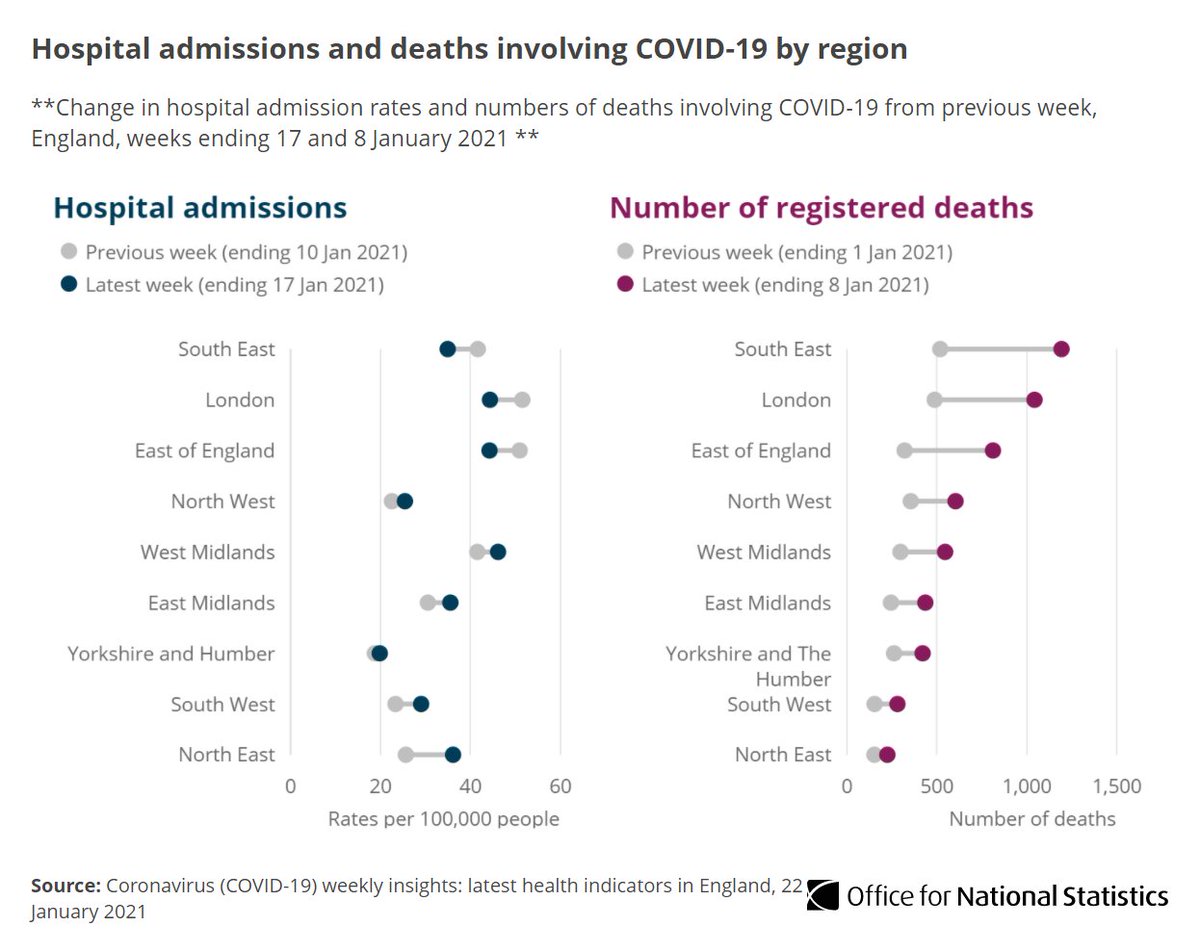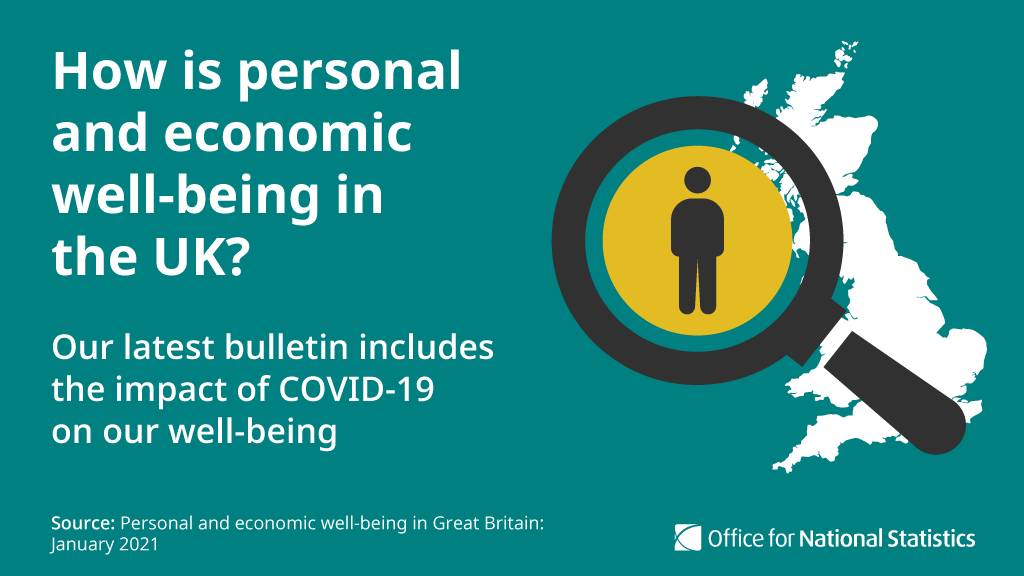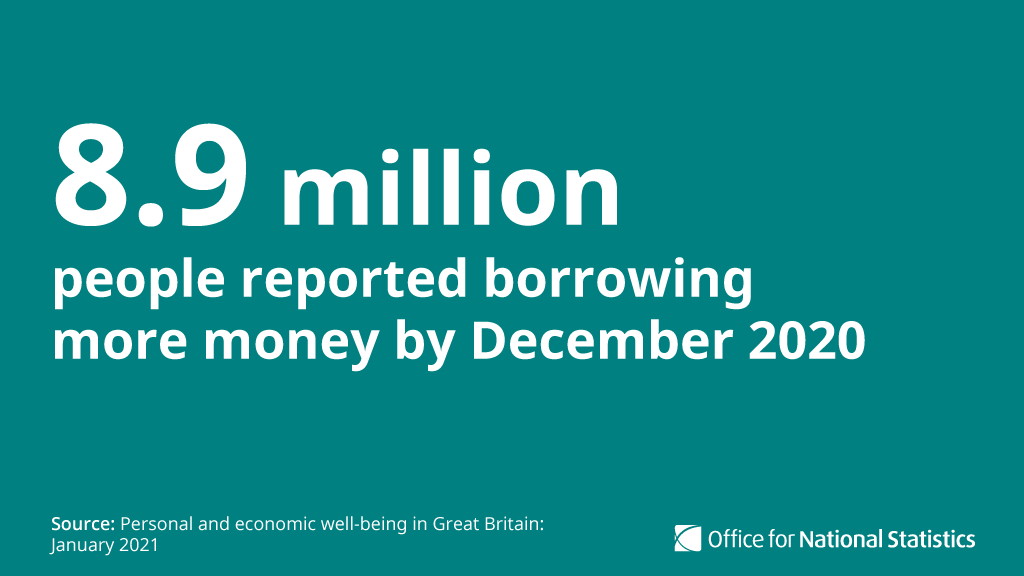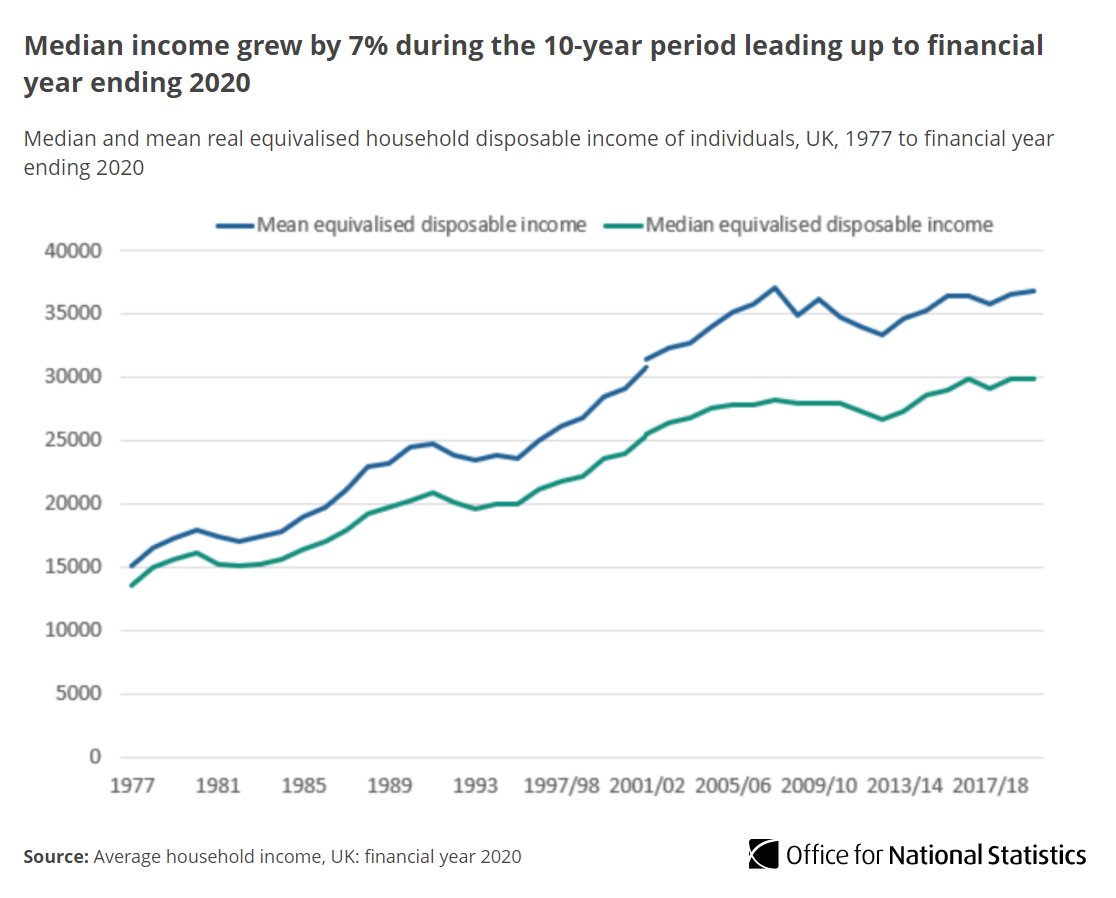
We've published new data from the Opinions and Lifestyle Survey, including questions about feelings towards the #COVID vaccine, mass testing, and the future.
Findings are from 13 to 17 January ow.ly/qDbg50Dfhiu
Findings are from 13 to 17 January ow.ly/qDbg50Dfhiu
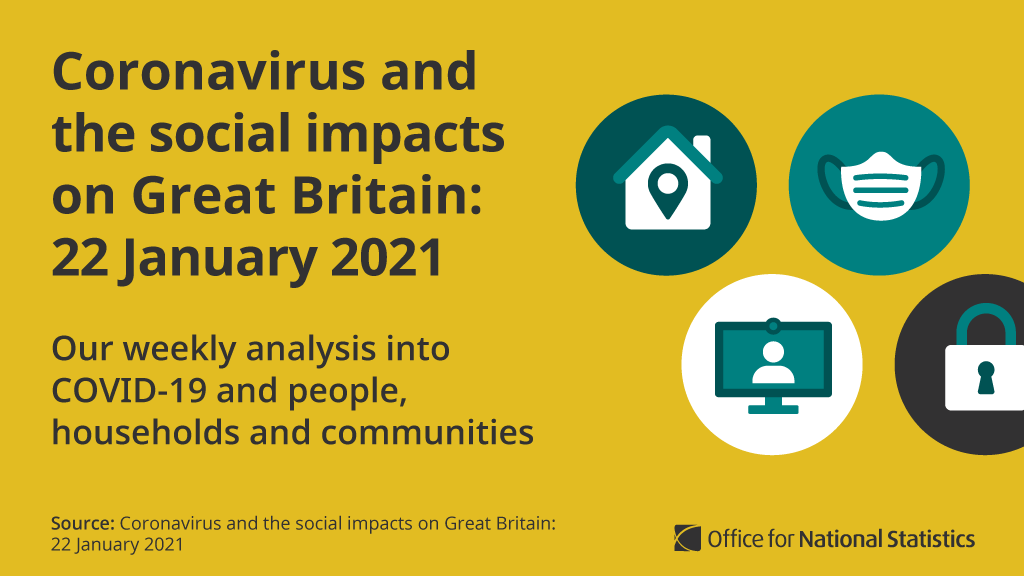
There appears to be more positive attitude to the #COVID19 vaccine, with 90% reporting they’d received the vaccine, accepted an offer, or would likely accept if offered ow.ly/hkAn50DfhnG 
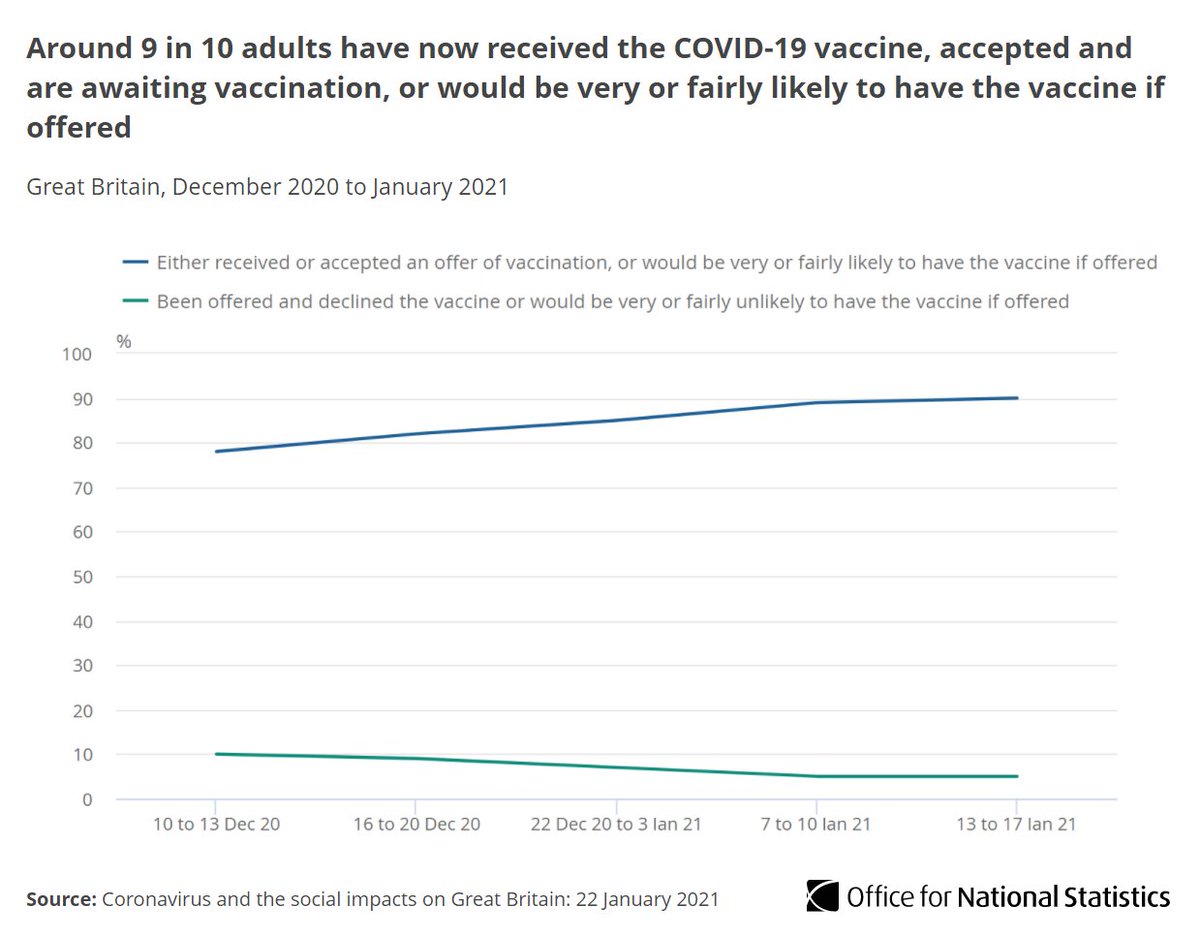
Adults reporting they would be likely to have the #COVID19 vaccine if offered appeared to increase with age, rising from 81% among 16 to 29 year-olds to 98% among those aged 70 years and over ow.ly/JV6450Dfhrw 
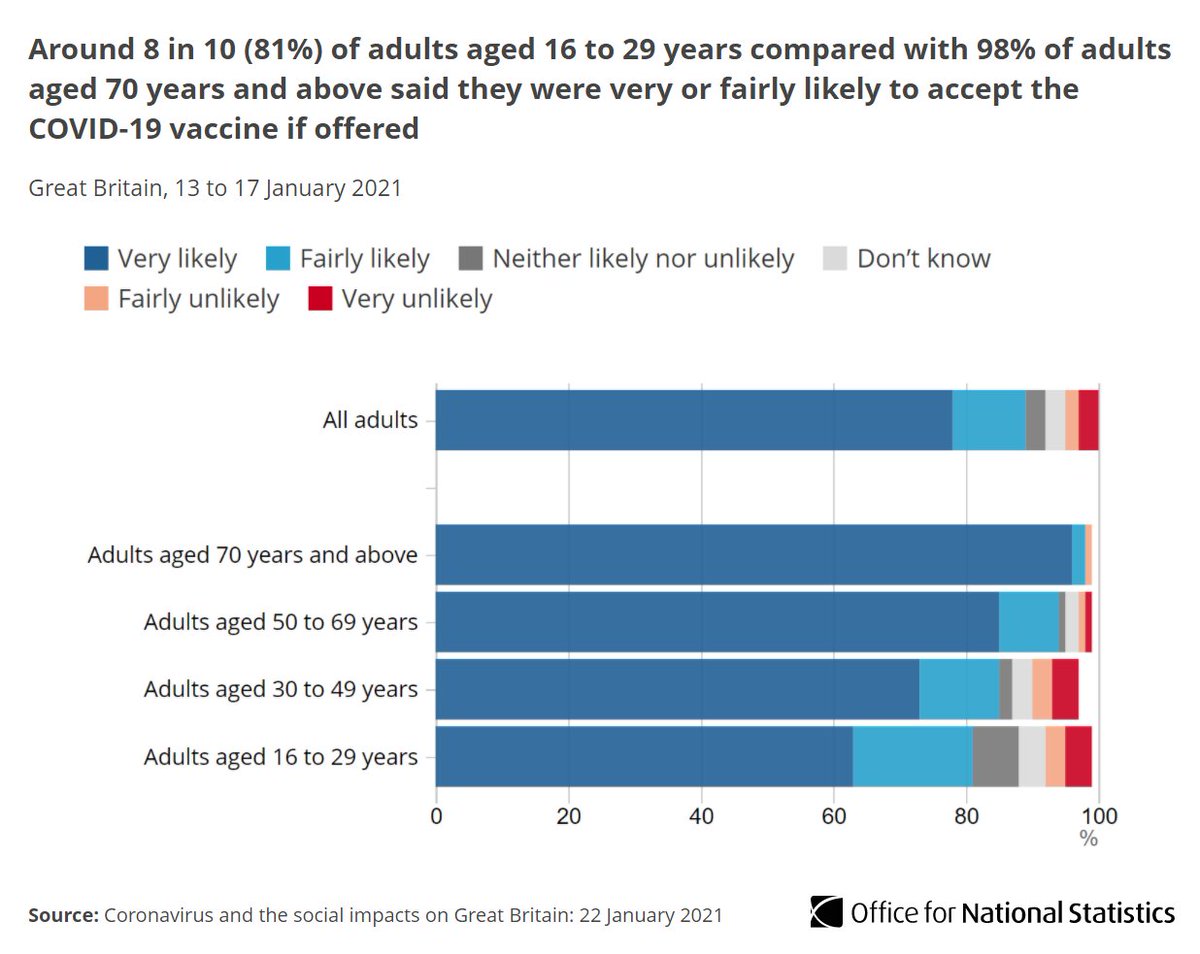
The proportion of working adults that worked from home at some point in the last week is the highest since June 2020, at 45% ow.ly/FDBd50Dfhvo 
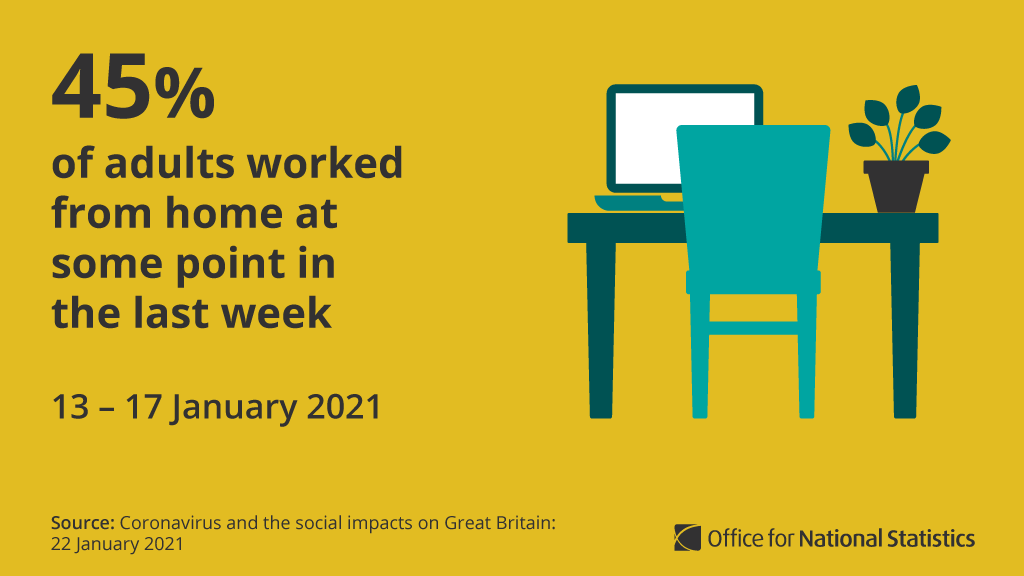
Personal well-being scores remained low.
Life satisfaction, feeling that things done in life are worthwhile and happiness remained around the lowest since March 2020. However, there was some improvement in anxiety scores ow.ly/OisT50Dfhzf
Life satisfaction, feeling that things done in life are worthwhile and happiness remained around the lowest since March 2020. However, there was some improvement in anxiety scores ow.ly/OisT50Dfhzf
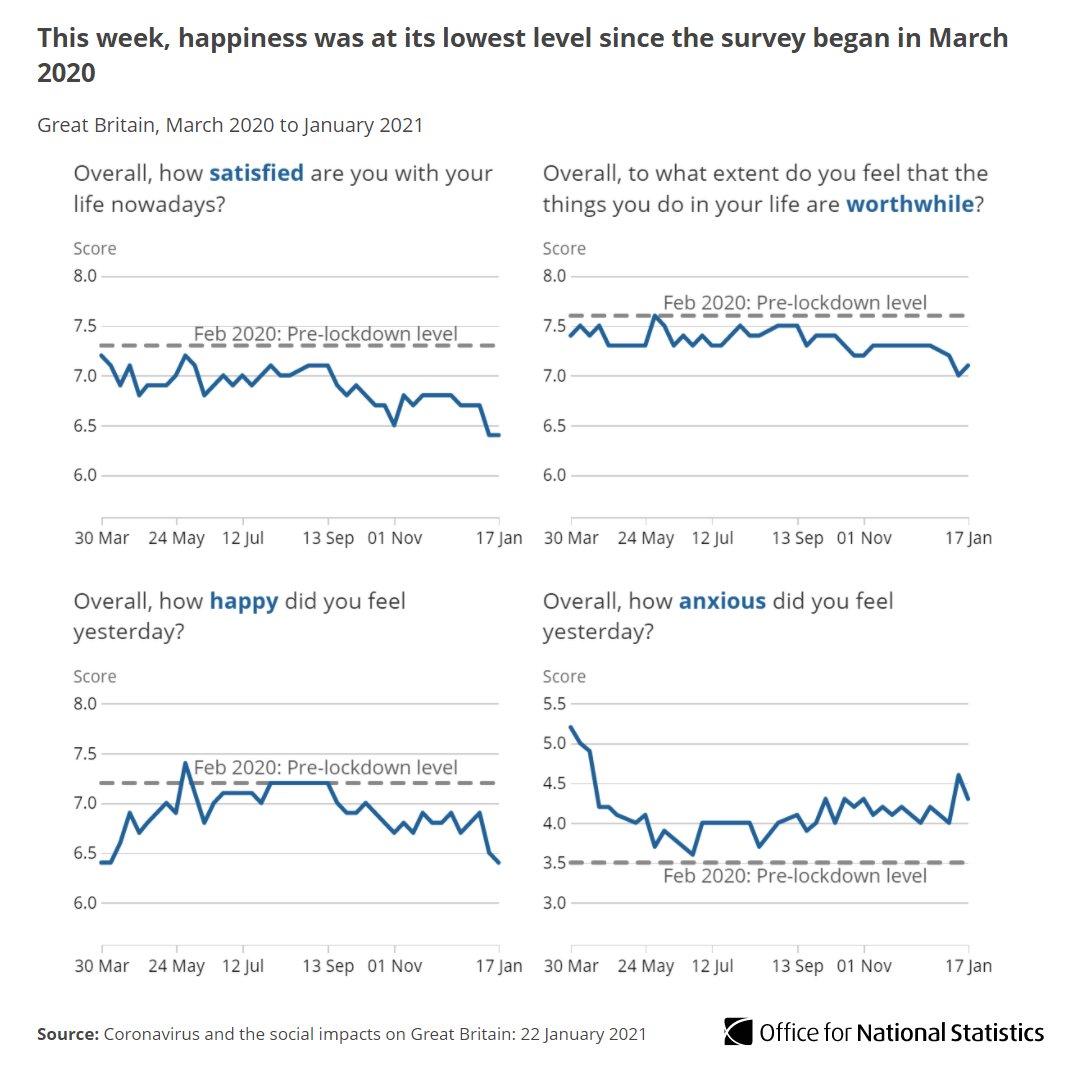
Feeling that life will return to normal in more than a year is now more common (25%) than feeling that life will be back to normal in 6 months or less (22%) ow.ly/KeVM50DfhAZ 
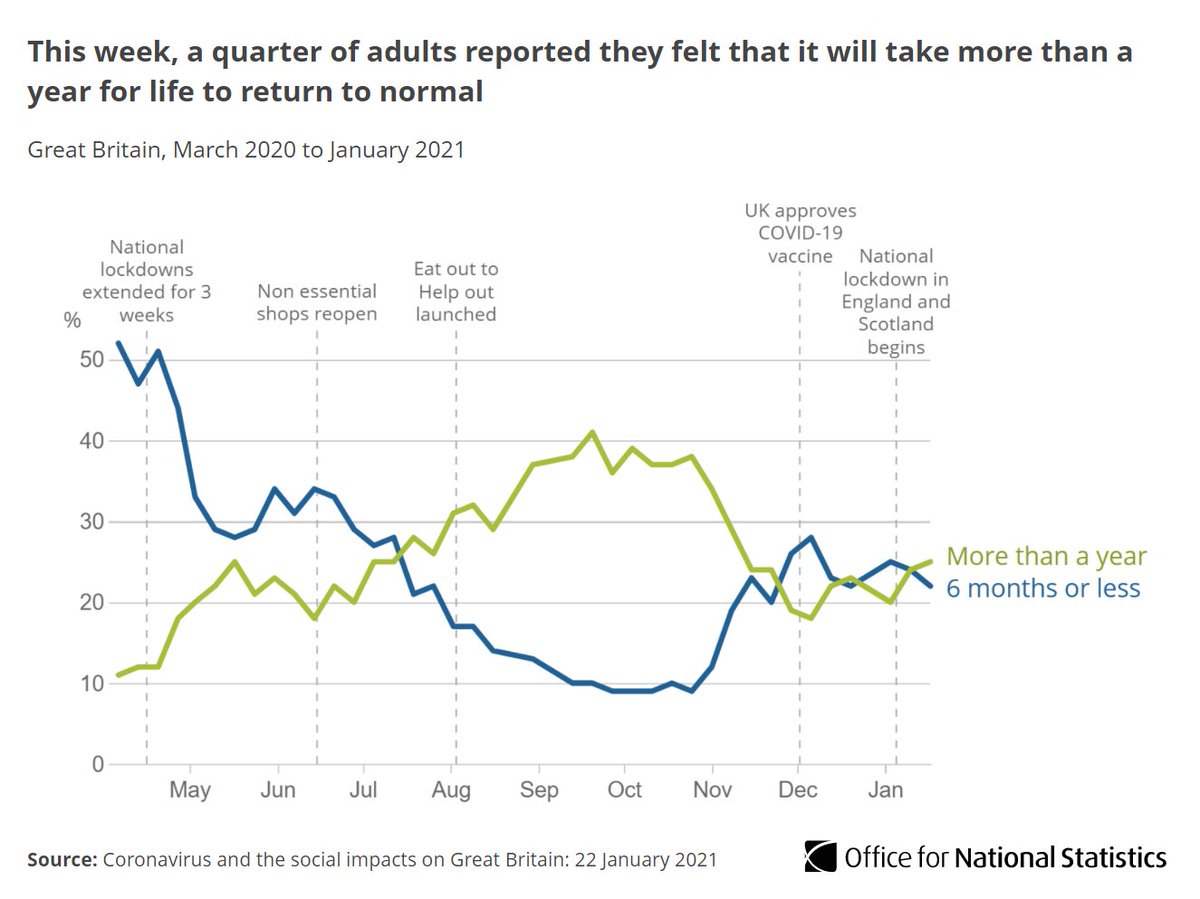
• • •
Missing some Tweet in this thread? You can try to
force a refresh



